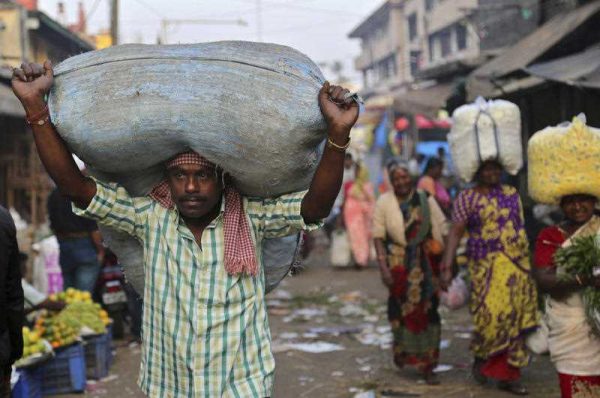What can be done to boost bilateral trade?
Economic theory would predict that trade between the two largest economies in South Asia should be far greater, given the existence of common history, language, culture and long borders. But a variety of political and infrastructural impediments have virtually paralysed bilateral trade relations. Political differences, particularly following the 1965 and 1971 wars, is one major factor.
Studies show that the potential for formal trade between India and Pakistan is roughly 10–20 times greater than recorded trade. Trade in services, and informal and indirect trade through third countries, increases this trade potential even further.
In 1996 India granted most favoured nation (MFN) status to Pakistan, but this did not improve trade relations as Pakistan chose not to immediately reciprocate. Only 16 years later in February 2012 did the Pakistan government declare it was ready to grant MFN status to India. The decision could have been a turning point in trade relations between the two countries. But the 2013 deadline was missed, largely due to opposition from Pakistani stakeholders, especially agriculturalists.
The government of the Pakistan People’s Party (PPP) decided to postpone implementation of India’s MFN status until after the 2013 elections, leaving the new government to make the final decision. The Pakistan Muslim League–Nawaz (PML–N) government similarly postponed a decision in March 2014 to move ahead with MFN. Because of controversy surrounding the term, MFN is now referred to as ‘Non-Discriminatory Market Access’ (NDMA) in Pakistan.
Two main reasons have been advanced to explain the postponement of India’s NDMA. First, the Pakistani government has said that it received a request from India to postpone its NDMA until after the Indian elections. Second, General Raheel Sharif, the Chief of Army Staff, reportedly met with Pakistani Prime Minister Nawaz Sharif a day before the cabinet’s decision and expressed the military’s misgivings about moving too rapidly on the trade front. A further obstacle arose in May 2014 when the Senate of Pakistan, under intense lobbying from agriculturalists, pushed to remove agricultural products from the NDMA discussions.
In late 2015 there was a warming of relations, giving rise to some optimism that trade talks would come back on track. Unfortunately, the terrorist attack on India’s Pathankot Air Force base on 2 January 2016 recreated an atmosphere of suspicion, and Indian accusations of Pakistani complicity could potentially derail talks. Still, there is hope that the matter will be settled as the Pakistani government has agreed to investigate whether the attacks were directed by groups based in Pakistan.
Political and social conditions in Pakistan are now ripe for the improvement of trade relations with India. The main political parties in Pakistan are generally supportive of friendly relations with India and favour stronger economic and commercial ties. This is certainly the position of the current PML–N government.
The relatively weak performance of the Pakistani economy since 2008 has led Pakistan to recognise that its long-term economic development is closely linked to its South Asian neighbours. This recognition emboldened both the PPP and then PML–N to revive talks on trade that had broken off in the wake of the Mumbai terrorist attack in 2008. The business community in Pakistan has also been a strong lobby group for normalising trade relations with India.
There is a widespread perception that the Pakistan military is opposed to trade with India on security grounds. But the military realises the need to explore all avenues for improving the economy, including expanding trade with India. Normalising trade relations will depend on how the military balances these economic and security objectives.
Despite the reservations of some important stakeholders in Pakistan — farmers, the automotive and pharmaceutical industries, and possibly the military — there is general optimism that NDMA will come into effect in 2016. If that happens, 2016 could be a watershed year for India–Pakistan economic cooperation, as well as a game changer for Pakistan’s future economic development.
India’s NDMA status alone will not be enough to overcome all the challenges to healthy Pakistan–India trade. Future steps in promoting India–Pakistan trade should include an agreement on non-tariff barriers (NTBs) and the creation of a dispute resolution framework. Pakistani officials and exporters argue that India’s NTBs are applied selectively against Pakistani exports to India. While both India and Pakistan have access to the dispute settlement mechanisms of the WTO and SAFTA, there should be methods for informal private party dispute settlements as well.
The two countries must also develop the physical infrastructure required to facilitate two-way trade. The quality of road networks between India and Pakistan is low and rail networks between ports and markets are limited. It is in the interest of both countries to work together to reduce these physical bottlenecks, possibly through public–private partnerships. To develop trade in services, restrictions placed on Pakistani businessmen entering the Indian market must also be removed.
The complete liberalisation of trade between India and Pakistan will be a long and arduous process, but granting NDMA status to India would be a good start. Higher levels of trade will bring economic benefits to both countries, though Pakistan will clearly benefit most. With India cementing its position as the region’s engine of growth, Pakistan must hitch its wagon to the locomotive or risk getting completely left behind.
Mohsin Khan is a Non-resident Senior Fellow at the Rafik Hariri Middle East Center, the Atlantic Council.

